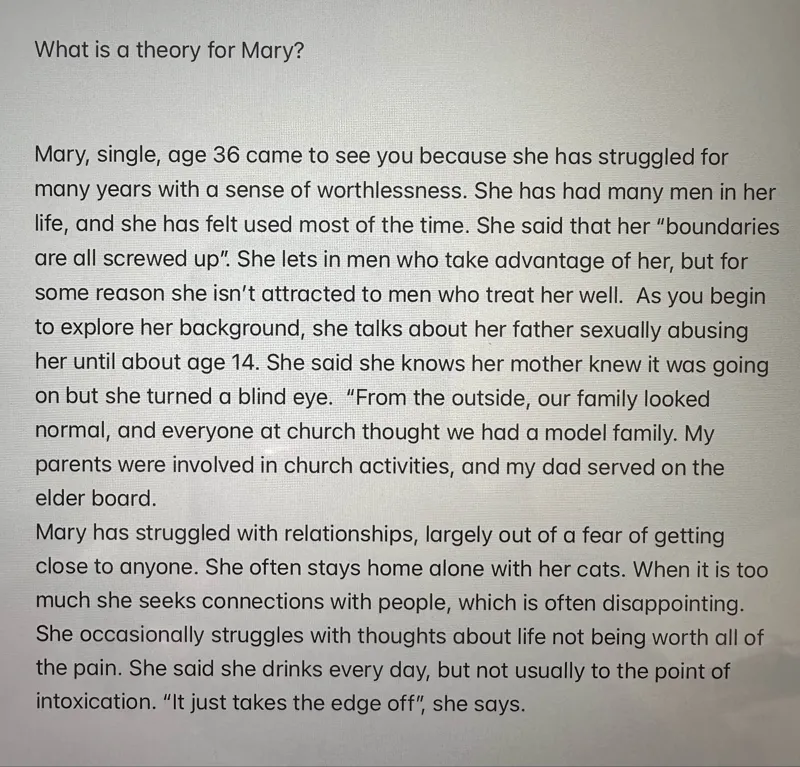Questions: What is a theory for Mary? Mary, single, age 36 came to see you because she has struggled for many years with a sense of worthlessness. She has had many men in her life, and she has felt used most of the time. She said that her "boundaries are all screwed up". She lets in men who take advantage of her, but for some reason she isn't attracted to men who treat her well. As you begin to explore her background, she talks about her father sexually abusing her until about age 14. She said she knows her mother knew it was going on but she turned a blind eye. "From the outside, our family looked normal, and everyone at church thought we had a model family. My parents were involved in church activities, and my dad served on the elder board. Mary has struggled with relationships, largely out of a fear of getting close to anyone. She often stays home alone with her cats. When it is too much she seeks connections with people, which is often disappointing. She occasionally struggles with thoughts about life not being worth all of the pain. She said she drinks every day, but not usually to the point of intoxication. "It just takes the edge off", she says.

Transcript text: What is a theory for Mary?
Mary, single, age 36 came to see you because she has struggled for many years with a sense of worthlessness. She has had many men in her life, and she has felt used most of the time. She said that her "boundaries are all screwed up". She lets in men who take advantage of her, but for some reason she isn't attracted to men who treat her well. As you begin to explore her background, she talks about her father sexually abusing her until about age 14. She said she knows her mother knew it was going on but she turned a blind eye. "From the outside, our family looked normal, and everyone at church thought we had a model family. My parents were involved in church activities, and my dad served on the elder board.
Mary has struggled with relationships, largely out of a fear of getting close to anyone. She often stays home alone with her cats. When it is too much she seeks connections with people, which is often disappointing. She occasionally struggles with thoughts about life not being worth all of the pain. She said she drinks every day, but not usually to the point of intoxication. "It just takes the edge off", she says.





